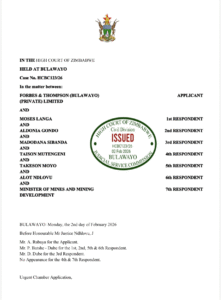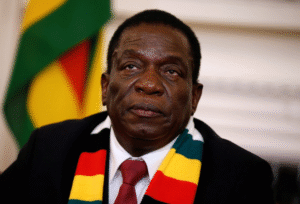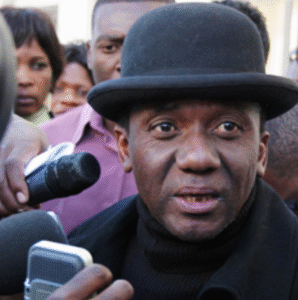EMPTY PROMISES? : MTULI’S TRACK RECORD UNDER SCRUTINY AMID COWDRAY PARK CAMPAIGN
As the political season gains momentum in Zimbabwe, public attention has shifted towards Cowdray Park, where former Finance Minister Mtuli Ncube is utilizing government-funded projects to campaign for votes. It’s a move that has brought both praise and criticism from across the political spectrum. However, considering his controversial tenure as Finance Minister, many question the credibility of his promises.
During his term as Finance Minister, Mtuli championed several high-profile fiscal policies and projects. Still, unfortunately, many of these were met with dismal outcomes, largely attributed to economic mismanagement, opaque processes, and a lack of accountability. His tenure saw the economy spiral downwards, with surging inflation, skyrocketing unemployment rates, and a general decline in the standard of living. These factors have cast a long shadow on his ability to deliver on his new campaign promises.
In Cowdray Park, Mtuli has been employing government resources to woo voters, promising transformative development projects that would supposedly improve the socio-economic conditions of the residents. From roads and housing to healthcare and job opportunities, the array of promises he has presented is expansive. However, they’re eerily reminiscent of the unfulfilled pledges of his previous tenure.
The residents of Cowdray Park are right to be skeptical. They’ve witnessed firsthand the stark contrast between Mtuli’s lofty rhetoric and the hard realities of life under his financial leadership. They’ve borne the brunt of a struggling economy, and they are wary of being led down the same path again.
Critics argue that the utilization of government-funded projects for campaign purposes underscores the blurred lines between state resources and political campaigns in Zimbabwe. This practice, which veers dangerously close to patronage politics, does a disservice to the democratic process, as it prioritizes politicking over the effective implementation of much-needed development projects.
The question remains: Can Mtuli deliver on his promises this time around, or is Cowdray Park merely a platform for another round of unfulfilled pledges? The answer lies in his ability to acknowledge past shortcomings and demonstrate a clear, realistic, and transparent plan for fulfilling his promises.
Mtuli must understand that the people of Cowdray Park, like all Zimbabweans, are tired of empty promises and are yearning for genuine, positive change. As a public servant, he has a responsibility to deliver on his promises, ensuring that state resources are utilized for the public good rather than personal political gain.
His Cowdray Park campaign will serve as a litmus test not only for his political career but also for the maturity of Zimbabwean democracy. Zimbabweans have the right to demand transparency, accountability, and honesty from their leaders. As Mtuli treads the campaign trail in Cowdray Park, he must keep in mind that the people’s trust is not freely given but must be earned through dedicated service and demonstrable results.
Mtuli’s campaign in Cowdray Park, backed by government-funded projects, is a reminder of the work that needs to be done to separate politics from the delivery of public services. It’s a reminder that leaders should be evaluated not by their promises, but by their ability to deliver. It’s high time that politicians like Mtuli realize that empty promises are no longer sufficient to win public trust – actions must follow words.





